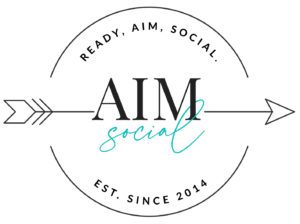Do you groan every morning when your alarm goes off, dreading the 10-12 hour workday ahead of you? Do you feel a constant pressure to work longer hours to accomplish goals or meet deadlines, even if it means sacrificing the few sacred hours you get to spend at home? Or, do you feel like you’re being stretched so thin that you can’t possibly get everything done?
If you can relate to any of those scenarios, chances are you’ve become part of hustle culture. Also known as toxic productivity, Taylor’s University defines hustle culture as “overworking to the point where it becomes a lifestyle.”
Time and time again, we are given the message that working more and more hours is a way to succeed. The harder you hustle, the more success that comes your way. But is working to the point of exhaustion truly any way to live?
Not quite.
Why Hustle Culture is Harmful to Everyone
Although the traditional workforce is 40 hours per week, employees in all industries often work over that – sometimes even pushing 70 or 80 hour weeks. For entrepreneurs and small business owners, the lack of an 8-5 schedule can unintentionally lead people to work 24/7.
Motivational quotes, the “boss babe” lifestyle, and influences from social media platforms create an illusion that logging more hours equals a higher level of success. But, research has shown that it only leads to higher levels of burnout.
Bryan Robinson, Ph.D., Professor Emeritus at the University of North Carolina at Charlotte and bestselling author, calls the appearance that hustle culture creates “toil glamour.” Toil glamour doesn’t allow for leisure, weekends off, or vacations. Even worse? It’s something that people brag about. According to Robinson’s research, this could also cause you to cut your career short and place yourself at a higher risk of death at an earlier age.
Hustle culture also has a significant impact on our mental and physical health. Between the constant pressure to contribute to projects, match your coworkers’ level of productivity, and demands from clients or bosses, it’s almost impossible to have time to breathe. According to the National Institute of Mental Health, being exposed to this constant stress can even lead to things like:
- Having trouble sleeping
- Increased anger and irritability
- Headaches (or migraines)
- Anxiety and depression
- High blood pressure
- Diabetes
- Heart disease
Ultimately, constantly pushing the boundaries of what our mind and body can handle leads to nothing but harmful, adverse outcomes.
This pressure to overwork ourselves doesn’t have to come from an outside source, either. Many people find they end up unintentionally pressuring themselves to work harder and do more, even when it’s not necessary. The motivation for pressure can also come from seeing other people in your environment take on heavy workloads.
With the Great Resignation of 2021, more employees are leaving corporate businesses to start small businesses. Unfortunately, most people can’t work a routine workload and maintain an average, middle-class lifestyle. It has driven many young adults to create their own side business (or “side hustle”), get a part-time job, or even a second full-time job.
Stopping the Hustle
Hustle culture is bad for everyone. But how do we stop being a part of it?
The first step is to remove the word “hustle” from your vocabulary.
Maintaining a work-life balance is the next step to getting out of the hustle culture mindset. Although it’s the most challenging step that you’ll take, having healthy boundaries between work and time spent at home can make a world of difference. Turn off your laptop and log out of your email when you’re done with work. Then, allow yourself space to get other things done like projects around your home or participating in hobbies – do anything that doesn’t involve work.
Incorporating time to decompress and practice self-care is another essential step when breaking out of the hustle culture cycle. While self-care looks different for everyone, at its core, it should rejuvenate you and allow you to relax in a way that has a positive effect on your mental health.
Lastly, you have to shift your work mindset from one that aligns with hustle culture, the mentality that you have to be “on” constantly and alert. Instead of thinking like that, start thinking about ways to work more efficiently to allow yourself time to rest and be aware of your emotions and well-being. Here are a few tips on how to do that:
- Schedule a 1010-minute break every hour where you look at something other than a screen.
- During times of rest, allow your mind to drift off. Think of things other than projects or work assignments.
- Journal regularly, writing down your goals and intentions. Don’t stray from them unless they need to be altered.
- Reward your accomplishments and plan for your next goal or deadline instead of immediately achieving more.
- Take mental health days when you need them.
Are You Ready?
If you’ve been caught up in hustle culture, it’s time to stop. Break out of the never-ending work cycle by actively taking steps to decrease stress and increase life satisfaction. AIM Social can help with virtual tasks taking over your workload as an entrepreneur. Find out more information about our services here!

